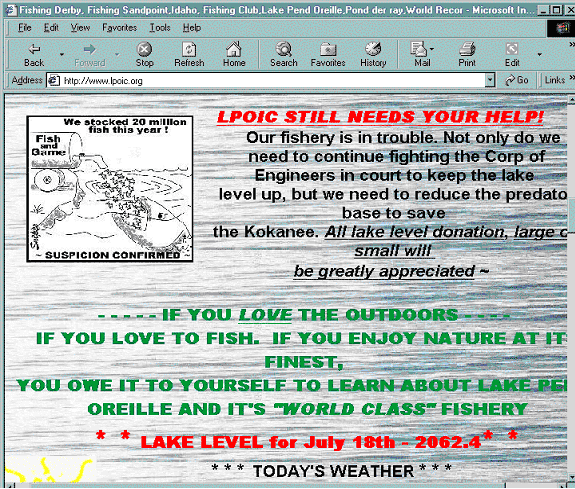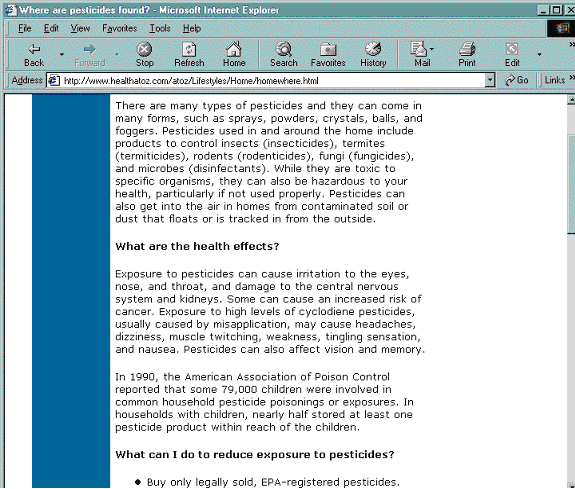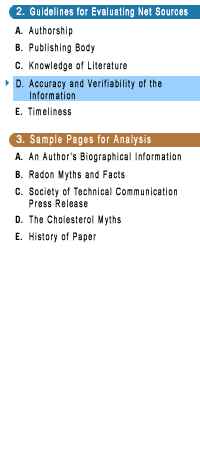A good source on the Internet will have precise information that you can verify, if necessary. Ask yourself:
- Is the site well constructed? A well-designed site presents information clearly and effectively, making it easier to determine the site's purpose and the accuracy of its content.
 |
|
A poorly designed Web site may raise questions about the credibility of the publisher or the accuracy of information found on the site. For example, if you are looking for data on fisheries, this site may not be your best choice for information.
http://www.lpoic.org

|
|
- Is the information well written? The quality of written material also speaks to the credibility of the author and publisher.
- Are the claims supported by specific, appropriate evidence? Evidence from reliable sources adds credibility to the author's argument and gives you the opportunity to verify the accuracy of the information, if necessary.
|
 |
In this excerpt, claims regarding the health effects of home pesticides are supported by evidence from the American Association of Poison Control.
http://www.healthatoz.com/healthatoz/Atoz/hl/sp/home/homewhere.html

|
|
- Does the author clearly describe appropriate research methods and theories used in producing the information? Knowing how the information was obtained can help you assess its accuracy.
|



